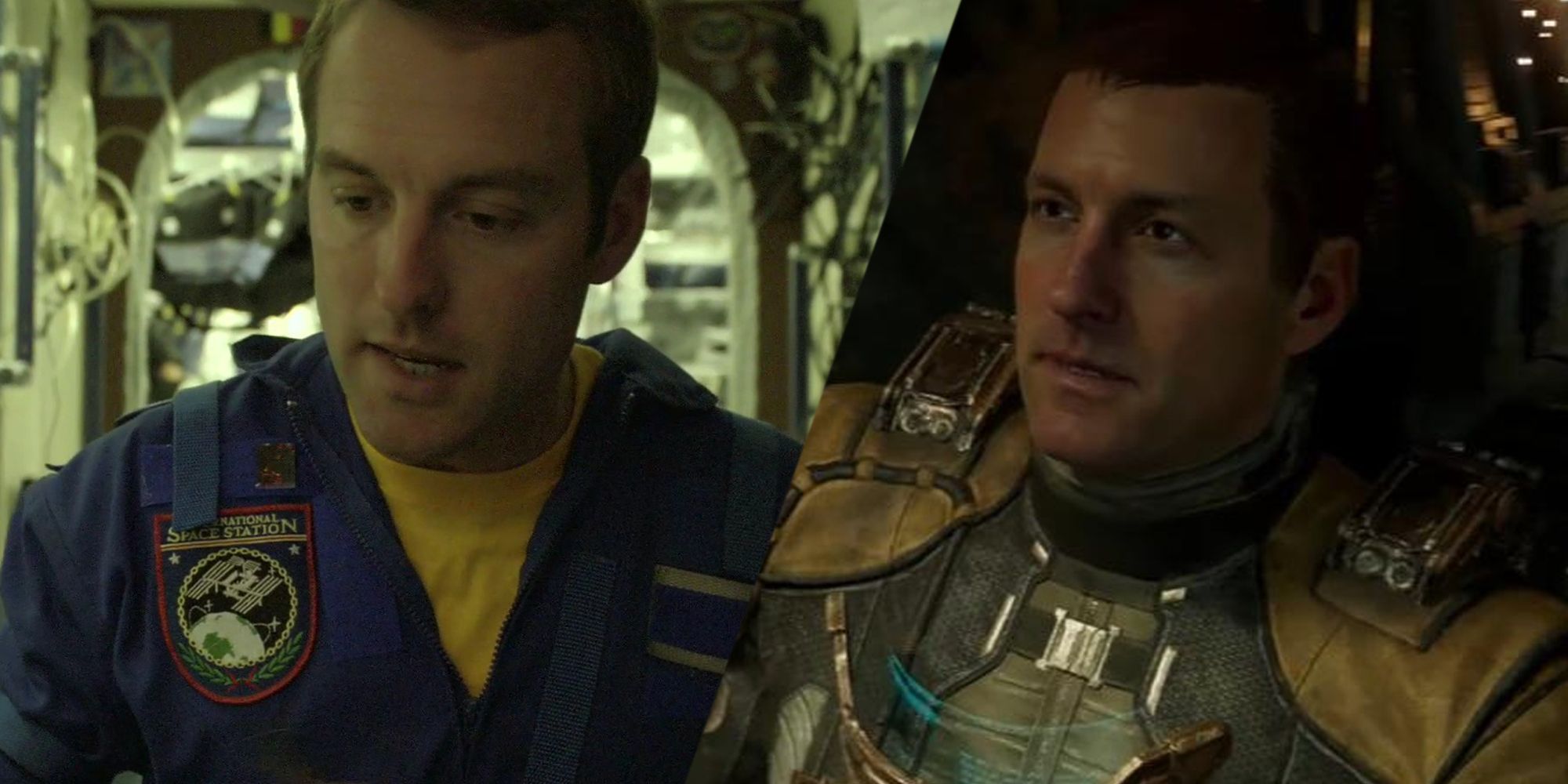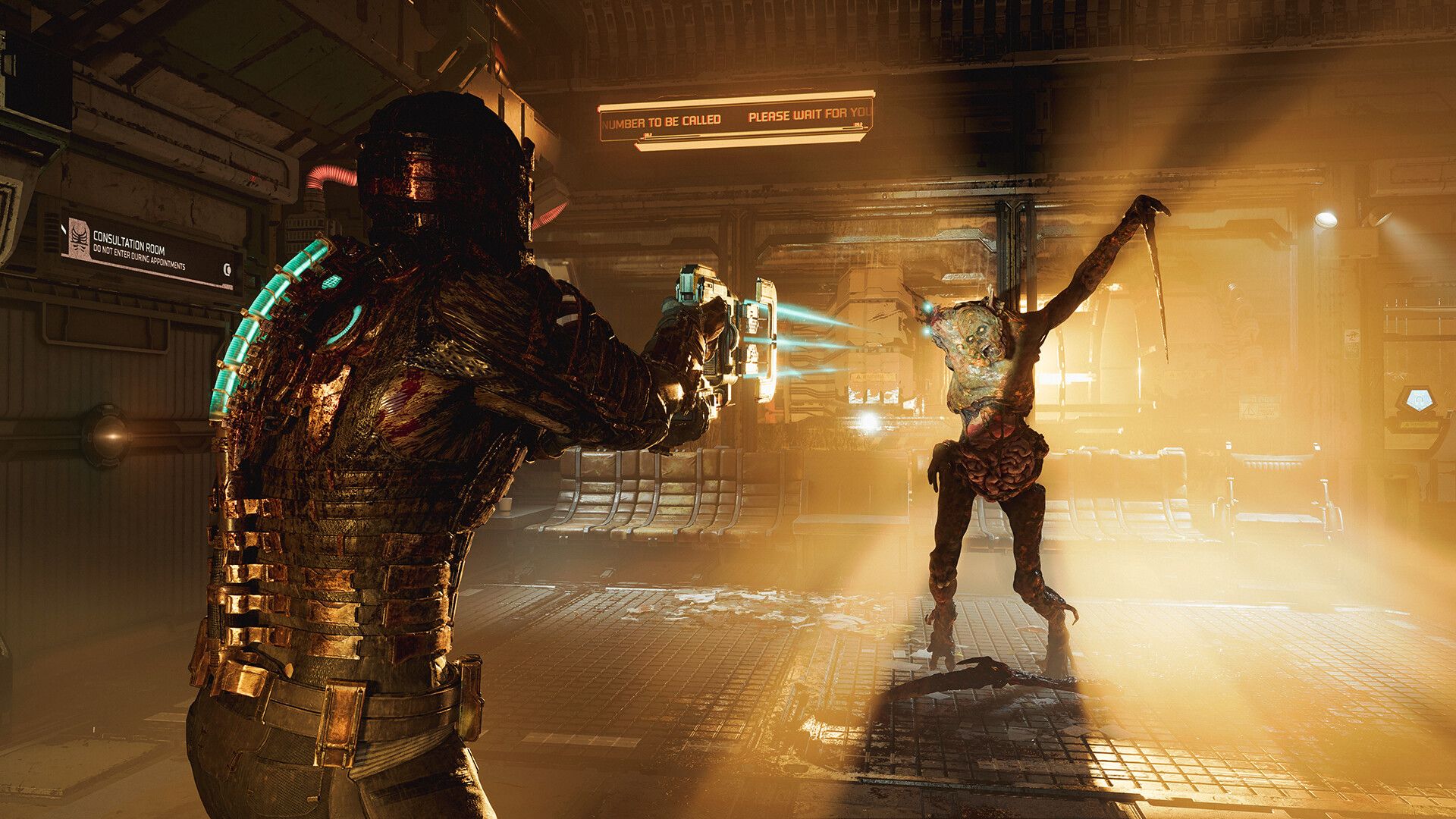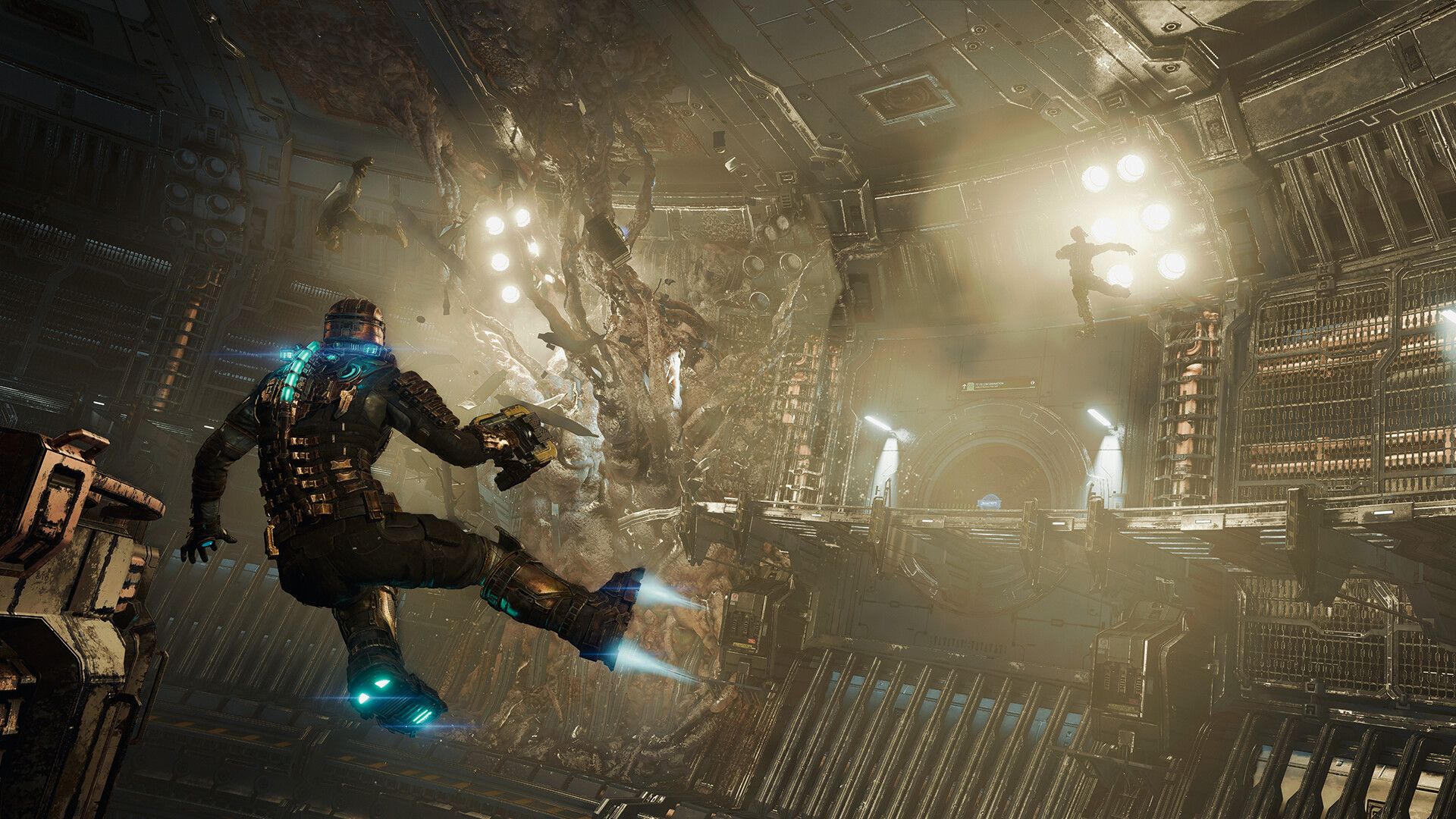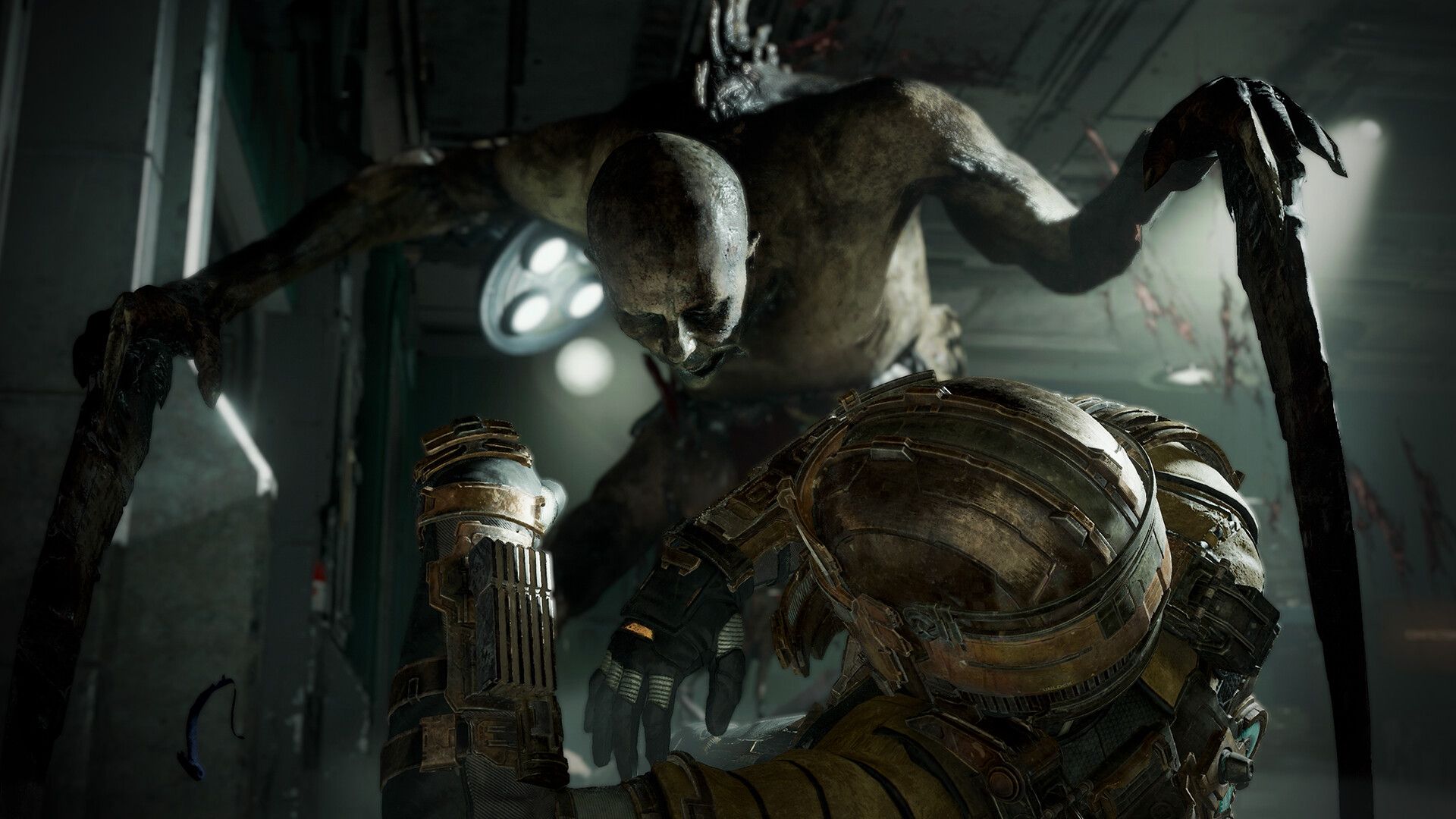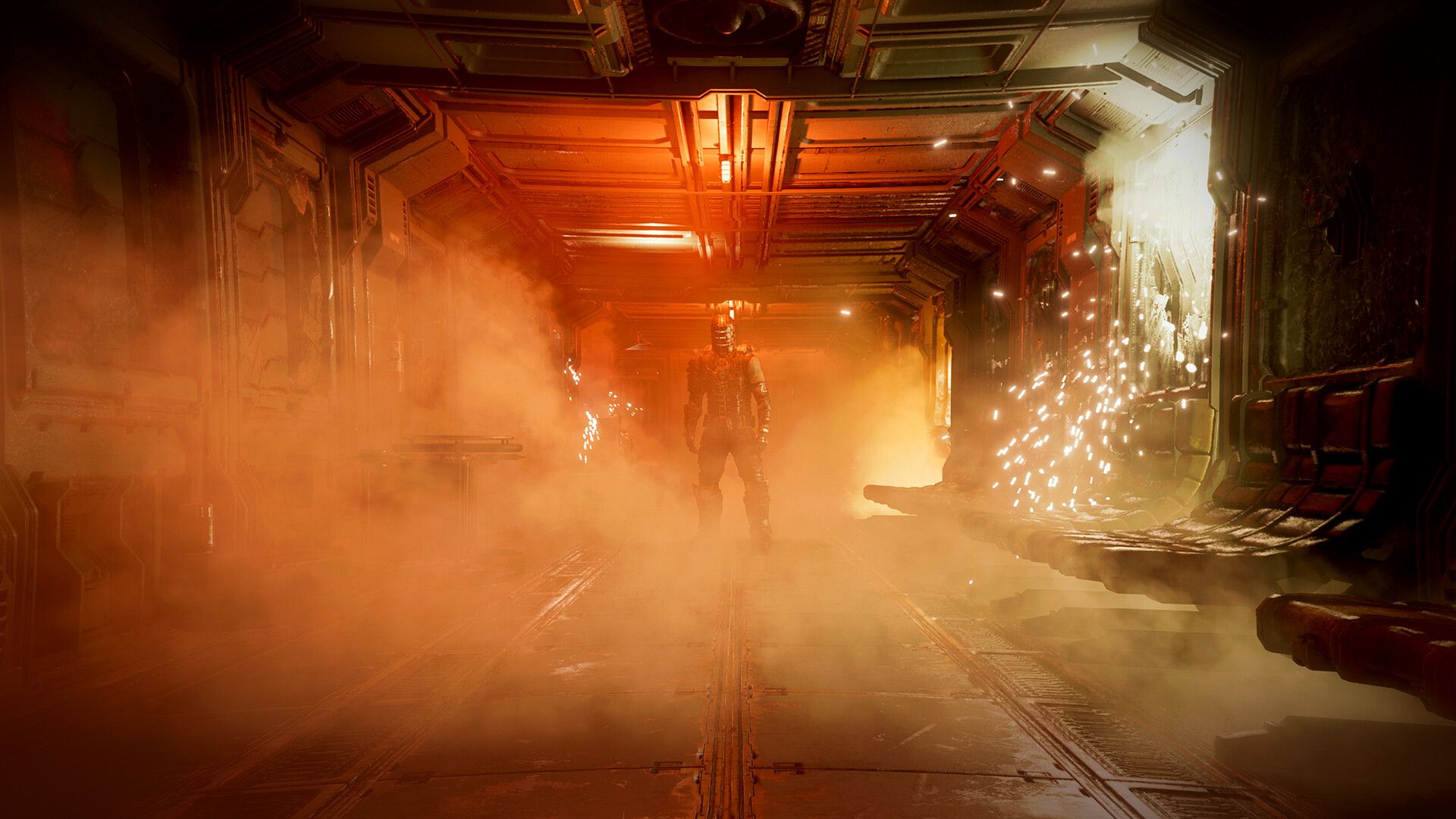“It doesn’t feel like I ever left,” Gunner Wright tells me about returning to the role of Isaac Clarke in the upcoming Dead Space remake. “Even though there was a hiatus, I can’t tell you how many fans around the world would send me an email asking to sign a game cover, autograph this, send me an action figure, or just a myriad of requests that I was more than happy to oblige to. I think over the last four or five years more and more people have been discovering this game from all around the world.”
Despite him not having a voice in the first entry, aside from guttural grunts and screams of agony, Wright has become permanently attached to the character, his voice and appearance becoming a staple for mentally unstable former mechanics with dead girlfriends and a very unlucky streak when it comes to bumping into necromorphs. The franchise wrapped up with the polarising and underappreciated Dead Space 3 in 2013, and since then fans have come to terms with the survival horror classic being left behind. Now it’s back, and the first chapter of Isaac Clarke’s story is being retold with more agency, more depth, and for the first time ever - a voice.
“As a being, as a character, you always have circumstances,” Wright explains. “So the DNA, the heart and soul of Isaac, was there all the way through the lineage of the previous games. But I relied heavily on Joel [MacMillan, realisation director] and his creative team to help steer me and guide me because I was never part of the original Dead Space or that world as an actor, so they were so gracious in helping mould where they wanted that performance to land. I still have all the scripts and materials from 2 and 3, so after going through those and marinating on Isaac Clarke I was ready to go.”
Realisation director Joel MacMillan was on board from the jump, joining Wright on the volume as he started performance capture for the character after a decade of absence.
“Gunner was able to fill those boots again really quickly and it was so impressive,” he tells me. “I think there was a collective excitement when you came on stage at the first P-CAP shoot, I remember it quite well. It really felt like you walked on stage and we were all just like, ‘Oh, Isaac’s here!’”
When it was first announced that Isaac would receive the vocal treatment in this remake, players feared that the claustrophobic horror and encroaching loneliness that defined the first game was going to be lost, but I was assured this complaint was one of the first things Motive had planned to address. It had seen the habit of triple-A protagonists talking to themselves too much and dishing out advice to the user when they seldom needed it, and wanted to avoid similar pitfalls. For example, not a word from Wright is heard in the launch trailer.
“One exciting thing about our version of Dead Space in the remake is we had an opportunity to develop a little more emotional range with Isaac,” MacMillan says. “There are sequences and moments and arcs and relationships that build throughout the game, and Gunner does a great job getting into that pocket, getting into that tone, since I appreciate that some of those could have been challenging, but they all came out fantastic.”
While the end result has paid off, it’s all a consequence of consistency throughout production that MacMillan was surprisingly willing to delve into. “When we started this project one of the first things the core leadership team decided we needed to address was wanting to provide Isaac with a better sense of agency, and make him feel a little more relatable. In order to do that, we needed to voice him, and we decided very quickly that we needed to.”
There were initial doubts Wright would return to the role, but once he was on board, it meant they didn’t need to fully reimagine this character or alter his personality to better fit a new interpretation - only to draw from the past while simultaneously looking towards the future. However, Isaac is a character who goes from silent engineer to bloodthirsty space marine over the course of a trilogy, so interpreting the beginning of that journey realistically wasn’t going to be easy.
“There was a set of ground rules for how we would write Isaac’s dialogue in order to not have him end up being too verbose,” MacMillan continues. “We wanted to be very cautious of having Isaac constantly commenting on what was going on around him. Because as a player, if you hear that running commentary going, as you’re playing through the experience, you start to develop an unwanted comfort level. We want the player to feel alone as they’re exploring the Ishimura, along with Isaac who is also alone, and if we had him constantly chatting, it would have betrayed and depleted that tension.
“So our ground rules were that Isaac could only speak when spoken to, and I think for about 90 percent of the game, we stuck pretty close to that. But certainly when he’s interacting with other characters, Isaac is responding, making his own suggestions, he’s providing a critique of the situation, he’s providing solutions. He’s a very solution-oriented engineer, a very capable engineer, and so that’s when you’re going to hear a lot of his dialogue and his reactions.”
Dead Space also deals with the concepts of insanity and mental deterioration in ways that survival horror always has, although how we tackle such topics since 2008 has changed for the better, with far more sensitivity in dialogue and storytelling. For Wright and MacMillan, it was difficult to modernise this game without these themes, but executing on them with more nuance and respect was more than possible.
“The whole team helped ground those emotions, where as an actor, it didn’t take a lot of a stretch for me to go there,” Wright explains. “They really helped with the pre-visuals and just understanding where Isaac is at that moment in time to where I would wrap for the day, ride my motorcycle back to Hollywood and be like, ‘Okay, let me just decompress for a second here.’ It felt very, very real, and very grounded, and a lot of that was the aid and help of the creative team.”
MacMillan adds: “Even from a script point of view, from Gunner’s performance to integration at the end, we wanted to make sure everything felt updated and more contemporary. Horror and acting sensibilities have changed over the past 15 years, and so have our audience and player sensibilities towards horror and performance, and video games in general, have really changed in that time. We want to make sure we are updating all of our content and delivery to address those things.”
Wright is also fascinated by how video games have advanced in terms of performance and prestige. Since the PS3/Xbox 360 days of 2008, it is almost an entirely different world, and one that has been surprisingly trivial to embrace. “I got a chance to visit EA a couple of times around Dead Space 2 and 3, and I got to meet a lot of the production team and the art team who created the suits, and I wish I could have had that opportunity with this one. But we’ll do that soon.”
A slight interruption from MacMillan at this point has me thinking that perhaps a remake of Dead Space 2 is already in the works, with Wright having let the necromorph out of the bag a little too soon before moving onto his wider thoughts about the medium. “This was 11 or 12 years ago, and I really could see the merge of the cinematic world and the gaming world, and now here we are. I was looking at Isaac building a plasma cutter in the game and it looks so real. It’s incredible to see what this production and art team has done to the point where I’m ready for the Dead Space movie.”

